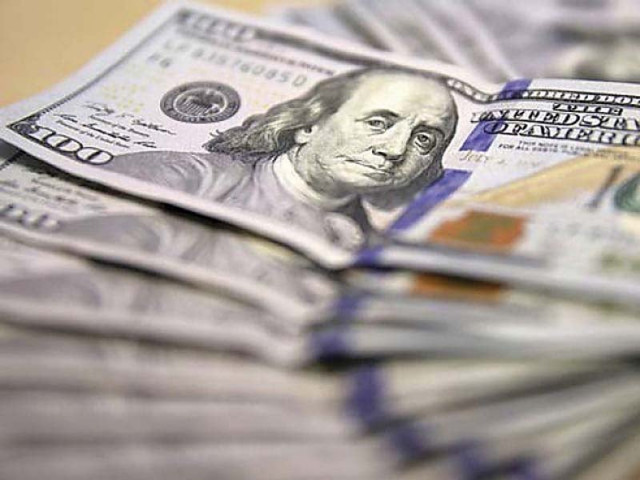Foreign exchange: An emerging black market from within a tight noose
Amid tight restrictions, incentive to cheat is high.

Current rules also impose restrictions on Pakistani businesses on paying for international services that are rendered outside Pakistan.
When markets are strangulated, black markets emerge. One such ‘emerging’ market in Pakistan is that of foreign exchange.
Pakistan administers a controlled financial regime for its resident citizens in terms of ‘ownership of foreign currency bank accounts’ and ‘capital controls.’ Pakistani businesses and individuals cannot open up a foreign currency bank account outside the country nor can they own and operate a business while operating from Pakistan. Current rules also impose restrictions on Pakistani businesses on paying for international services that are rendered outside Pakistan.

Canada based Fraser Institute measures countries according to level of economic freedom that exists and related this level with economic development. Economic Freedom of the World Index (2014) gives a score of zero out of 10 to Pakistan with respect to “freedom to own foreign currency bank accounts”, and a score of 0.8 on ‘Capital Controls’.
Probably these scores offer an accurate reflection of the restrictions that are imposed by the central bank. According to the State Bank of Pakistan rules, Pakistan nationals resident in Pakistan are not permitted to open or maintain any foreign currency accounts with banks outside Pakistan.
As an exception, they can maintain foreign currency accounts abroad in any country other than Afghanistan, Bangladesh, India and Israel, provided the balances held in such accounts do not exceed $1,000 or equivalent thereof in other currencies as provided in the government notification No. SRO 1016(1) 79 dated 17th October, 1979. These accounts cannot, however, be operated from the country without the prior approval of the State Bank of Pakistan.
Even in your domestically held foreign currency accounts, if you want the freedom of keeping foreign exchange, you cannot use it. The banks will always give you back Pakistani rupees against your withdrawal requests from forex accounts. Obviously, banks, and the central bank, may indeed profit on your dollars by investing in international forex markets.
The main rationale cited by the central bank is to discourage flight of capital from Pakistan, which may take place for investments abroad or simply for money laundering.
Despite restrictions, there is increasing anecdotal evidence that Pakistanis are shifting their capital abroad, through illegal means. In most cases, this is happening to avoid taxes, as the money transmitted abroad is remitted in through bank channels and thus, not only becomes white, it is also tax exempt. An obvious evidence of this is the recent consideration by FBR to impose taxes on remittance income.
This effectively means that the existing regulations have failed to stop the capital flight and outward transfer of foreign exchange.
Similarly, restrictions on payments for services might have a negative effect on the quality of local businesses which need international expertise not available inside the country. My argument is that such strangulating regulations not only fail to stop capital flight but, in fact, cause capital flight.
Imagine if Pakistanis are allowed to transfer a portion of their wealth to buy a property in the US or to invest in a business in London through banks. Just like foreign investors in Pakistan are allowed to repatriate 100% dividends back home, all major economies of the world, by default, allow repatriation of dividends.
Once transmitted through banks, the central bank can actually become cognizant of the source and destination of funds and dividends thereof. Thus Pakistani investors, severely short of good business projects in the country, stand to benefit from a legal outward transfer of their wealth. Even if they are allowed to invest for buying personal property, it will be reflected in the wealth of Pakistanis.
One incremental step that will improve Pakistan’s position in terms of economic freedom, and will reduce black market, would be to increase the threshold of deposit in foreign bank accounts from $1,000 to $100,000- an amount considered appropriate to buy or lease a residential property in most cities.
When markets are controlled, black markets emerge. This may be true in the case of foreign exchange market, in which hawala transactions constitute a large portion of all foreign exchange related transfers. These extra-legal channels then facilitate corruption, and even used for financing terrorism. In the name of constraint on capital flight, capital controls may result in proliferation of under-ground markets thus defeating the very purpose of laws. A comprehensive review and public debate is needed to discuss the merits and consequences of these laws for capital flight, investment, and growth.
The writer is Executive Director of PRIME Institute, an economic policy think tank based in Islamabad
Published in The Express Tribune, April 13th, 2015.
Like Business on Facebook, follow @TribuneBiz on Twitter to stay informed and join in the conversation.



















COMMENTS
Comments are moderated and generally will be posted if they are on-topic and not abusive.
For more information, please see our Comments FAQ